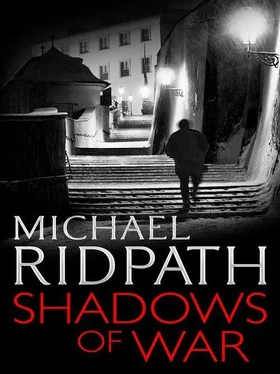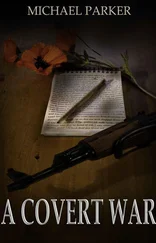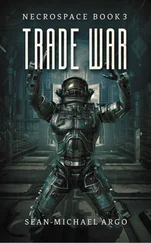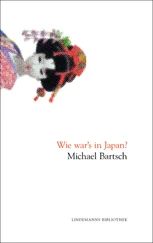It was a grey day, but the park was quite full. At least half the walkers were in uniform. Whereas two months before almost everyone would have been carrying gas masks, now no one was. Alston’s eye was caught by a tall dark-haired Wren, elegant in her naval uniform, walking with a shorter, plainer friend. He watched as she chatted animatedly, her teeth flashing as she smiled. They were almost upon her when she looked up, saw him, and for the briefest moment an expression of horror touched her face before she turned away.
As they passed, Alston heard an indistinct whisper from the friend. He felt a familiar surge of anger. You would have thought that by now he would have got used to the effect his face had on people. One side, his left, was almost perfect: high cheekbone, a smooth jaw with the hint of a dimple at the chin, a straight nose, fair hair falling to a mop at his brow. In his youth it was said he looked like Rupert Brooke. But the other side was a twisted mess of white and pink scar tissue, through which, miraculously, a living blue eye stared. The humiliation of the girl’s flinch was made worse by that all-too-brief period of his adulthood before his disfigurement when he had become accustomed to surreptitious admiring looks from girls more beautiful than the Wren. Silly woman.
‘Have you heard how Chamberlain is going to reply to the King of the Belgians?’ Freddie asked, referring to the peace proposal of a couple of days before.
‘A big fat raspberry, from what I can tell,’ said Alston. ‘If he ever gets out of bed.’ The Prime Minister had been laid low with gout for a couple of days. ‘The Dutch and the Belgians are clever enough to realize that if this war carries on, their countries will be squashed. Why can’t we?’
‘You don’t think we will be squashed, do you?’
‘We might be. But that’s not the point. The point is that we can divide the world between us. Germany takes the continent of Europe and Britain keeps our empire and the high seas. We leave each other alone.’
‘But would Hitler really leave us alone?’ Freddie asked.
‘Of course he would,’ Alston said. ‘He as good as told me himself when I saw him with Rib last year.’ Alston had met Joachim von Ribbentrop in Berlin when he had travelled to Germany on bank business in the early 1930s, and kept in touch with him when Ribbentrop became German Ambassador to London in 1936 and then Foreign Minister back in Berlin. Ribbentrop had introduced Alston to Hitler the previous spring in an attempt to give the German Chancellor a better idea of the opinion of the British ruling classes beyond the government. Alston had been surprised by the positive attitude Hitler had to the British people, if not to their Prime Minister.
‘Chamberlain’s a lost cause,’ said Freddie. ‘Unless the rumours are correct and the German generals do get rid of Hitler. Then he might negotiate something.’
‘That will never happen,’ said Alston. ‘I know Germany. It’s inconceivable that a German general would break his oath and overthrow his commander-in-chief in wartime. Somehow we are going to have to make sure we have a government in this country that talks sense.’
‘The Jews won’t wear it,’ said Freddie. ‘You know, the financiers. The Rothschilds. The Sieffs. Hore-Belisha. They won’t want to stop the war. They need to protect their German cousins.’
Alston smiled at his friend. Tall, thin, with wisps of hair plastered over a bald dome, the second Baron Copthorne looked and sounded like a dim aristocrat. He wasn’t entirely dim, but he was inclined to fall for some of the more simplistic notions of his friends. Still, he was loyal, and he was well connected: everyone liked Freddie.
‘Don’t worry too much about the Jews,’ Alston said. ‘This idea of a conspiracy of Jewish financiers is overblown. It’s true that some of the Jews I know in the City are concerned about what’s going on in Germany. But I don’t believe they want an unnecessary war and, more to the point, I don’t think they have the influence to insist on one.’
‘You should know,’ said Freddie. But he looked chastened.
‘So who is this girl we are going to meet, Freddie?’
‘Her name is Constance Scott-Dunton. She’s a friend of Marjorie’s.’ Marjorie was Freddie’s 22-year-old niece.
‘And are you sure we can’t get Marjorie to help us?’ Alston had met Marjorie several times and liked her.
‘Yes, quite sure. I did ask her, but she said no. The truth is, she was scared. She’s a sensible girl most of the time, but she can be a bit of a panicker.’
‘And this Constance girl isn’t?’
‘Not according to Marjorie. She’s game for anything, apparently. Marjorie is quite taken with her.’
‘Marjorie didn’t tell her what we wanted her to do?’
‘Oh, no. I thought we would leave that to you, once you’ve decided you like her.’
‘And what is this Russian Tea Rooms place?’
‘It’s in Harrington Road, opposite South Ken tube station. It’s owned by a Russian admiral. Admiral Wolkoff.’
‘I think I’ve passed it. A White Russian, I take it?
‘Oh, very much so. He was naval attaché for the Tsar in the last war, and stayed on in London after the revolution rather than return to Russia to be shot. Marjorie spends quite a lot of time there. She says it’s the kind of place a girl can go to unaccompanied quite happily. That’s where she met Constance.’
Freddie was flagging as they reached Harrington Road and the Russian Tea Rooms. It was busy. Alston spotted Freddie’s niece talking to a girl with black hair whose back was to the door.
Marjorie stood up, waved and kissed her uncle. ‘Hello, Uncle Freddie. Hello, Sir Henry.’
She held out her gloved hand to be shaken.
‘This is my friend Constance. My uncle, Lord Copthorne, and Sir Henry Alston.’
Constance was striking: pale, with a strong chin and large lively black eyes. They looked straight at Alston as they shook hands, and she smiled. Not a flicker of revulsion.
Alston smiled back.
‘Have some tea,’ Marjorie said. ‘They serve it in samovars. It’s really rather exciting. You’re not supposed to drink milk with it.’
So they sat down and ordered tea, which came in glasses contained in metal holders with handles.
‘Constance is a fan of yours,’ said Marjorie. ‘She has been dying to meet you.’
‘I wasn’t aware that I had any fans,’ said Alston, bemused.
‘I’ve read all your speeches,’ said Constance. ‘And Marjorie says you are frightfully clever.’
Alston glanced at his friend’s niece, who blushed. ‘Shh, Constance, you weren’t meant to say that. Constance is very keen on politics,’ she explained.
‘Oh. What sort of politics?’ Alston asked.
‘Common-sense politics,’ Constance said. ‘The war is stupid. The Jews started it. If we leave Hitler alone, he’ll leave us alone. We have the greatest empire the world has ever seen, and we should be left to enjoy it.’
‘That sounds like common sense to me.’ Alston glanced at Freddie, and then back at Constance. ‘Are you a member of any political party?’
‘No, not really. I was a member of the Nordic League, but they’ve disbanded that now.’ The Nordic League was a hysterical anti-Semitic organization that had blossomed a couple of years before and then wilted with the onset of war. ‘That’s where I met my husband Patrick. He’s away at sea in the navy.’
Alston felt a tinge of regret on hearing that this intriguing girl was married, followed by relief that her husband was probably three thousand miles away in a large metal boat.
‘You are not a member of the BUF, then?’ The BUF was the British Union of Fascists led by Sir Oswald Mosley. Alston didn’t like the British Union of Fascists. Neither, it transpired, did Constance.
Читать дальше












